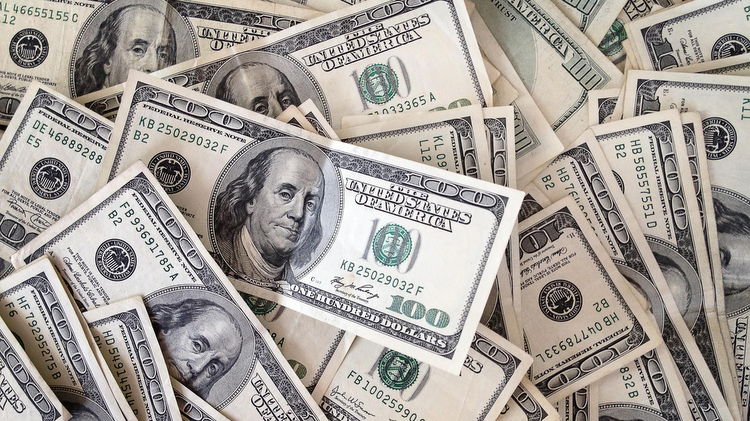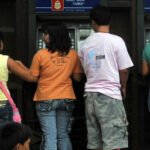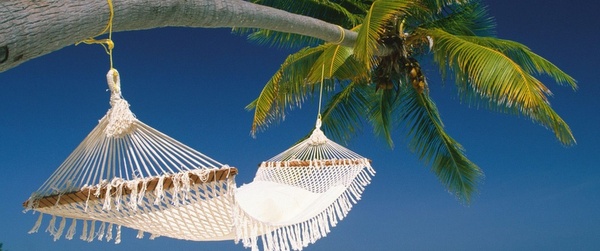
You have now made your move and decided to relocate to the Philippines. You will obviously want to have easy access to your money which is almost certainly paid into your bank back home. To do that, you will want to open a bank account here in the Philippines. Which bank should you choose here? A large, reputable bank is preferable.
All the major banks here all have slightly different rules and processes to open that bank account. There are many types of bank accounts including foreign currency deposit accounts. It falls outside of my expertise to advise you on which type of account you need so I suggest you research that and seek professional advice.
Opening an Account in the Philippines
The general principles in opening an account are that you will have to show proof of ID and provide residence details. Many banks will refuse to open an account if you are on a tourist visa without the ACR card. Once you have that card, then there should be no difficulty opening an account. The process at the bank can take as little as 30 minutes or so and you usually have to wait several business days before you revisit the bank to collect your new debit card. Again, the rules differ from bank to bank, but generally you have to be a customer of the bank for at least 6 months and have a land-line in your name before you can apply for a credit card. I would suggest checking the web sites of all the major banks in the Philippines before you visit your local branch in order to open your account.
Keep your Bank and Credit Cards Back Home
The solid advice from the experts, which I endorse, is to keep your current primary account back home. It’s also a good idea to keep one or two of your home country’s credit cards active too. What about your address back home? Find a good friend or family member who is willing to receive your bank and credit card statements at their address. You can always check your statements online.
So what are the reasons for keeping a “financial footprint” back home? Simple really! You never know what the future holds in store. What if you decide to move back home, or are forced to because of reasons totally out of your control? Your accounts back home, whether bank or credit cards, will ensure you maintain your credit score. It’s a good idea to use your cards now and again for say online purchases, as it doesn’t matter where you now live but shows you are “financially alive and kicking”. In the event of a repatriation, voluntary or otherwise, this should ensure you encounter no problems with items like mortgages, car loans and almost anything else that requires borrowing money.
One of the advantages I found with retaining my home country issued cards was when I was dealing with the Apple Store. I discovered that using aPhilippines issued bank card, whether debit or credit, locked me out of certain features of the store. Purely as an aside, it’s also worth considering a VPN to change your location to your home country to further ensure you benefit from features with online retailers that apply to citizens of the United States and the United Kingdom for example, but not to citizens of other countries. Yes, I know that’s discriminatory but please accept that I don’t make the rules!
A further consideration is this: there will be occasions you need to send money to friends or family back home and it’s far easier and cheaper to do this if both parties, you and the recipient, have accounts in the same country. Forget checks! A check drawn on foreign banks can take a long time to clear and it’s not unheard of for such checks not to be accepted at all by banks in the United States or the United Kingdom. Yet another advantage is that your U.S. or U.K. card also has a far greater chance of being accepted at any ATM wherever you travel in the world.
Online Banking
It’s not difficult to track and manage your home based accounts in this digital age. The days of trusting a close friend or family member to take care of your finances back home in your absence have long gone. Using any established bank or other financial institution, enables you to pay any kind of bill from your home country online and schedule money transfers to any individual or organization you wish in the same country as your home account. All it takes is a few clicks on the bank website after you go through the security log in procedures.
But to return to your Philippines bank account – the best advice is to keep sufficient in your new account for your regular payments in your new country. It’s also wise to have a separate savings account with the same bank as your “rainy day” money or “slush fund”. However, it’s also the wise man that keeps the substantial part of his savings in the financial institutions of his home country owing to the enhanced stability of the banking system in countries such as the United States and the United Kingdom. There are better protective measures in place for savers in the more financially stable countries of the world. Another reason to keep more of your nest egg back home is to do with stable currencies and interest rates. Historically and over the long term many western currencies have been far less volatile than some third world countries. Many savings vehicles back in your home country pay a rate of interest even on some checking accounts.
International Money Transfers
You still need to transfer your home based money to your Philippines account. By far the easiest way to do this is by using one of the many companies that specialize in international currency transfers. Like your online banking, this is also done with a few clicks of the mouse. If you shop around you will find out which are the most reliable, speediest and cheapest. You should closely examine the fees that are charged in conjunction with your actual rate of exchange. It’s no good transferring say $1000 for only a flat fee of say $2 then finding out you are not receiving a competitive exchange rate. Of course, these companies have to make a profit but make sure it’s not at your expense!
I’m sure these tips will save you a few dollars if implemented correctly. If you bump into me and that is the case, then buy me a cold beer!



Sound banking advice, Steve. One may add that using your home-based debit card at ATM’s in the Philippines may be a tad more expensive than using local ATM cards, especially with having to pay currency conversion fees. I learned at RTTP a while back that one way of circumventing this issue is to open an account with a home-based bank that has a branch in the Philippines. A good example is Citibank. Transfer between your home account and the Philippines branch account is free. I hope to do this after my arrival in mid-November and hopefully get my residence papers squared away. Just thinking.
Thanks for this advice. I was going to try openig an account at my next visit. It’s not going to happen as per your post and im not ready to retire there yet…still looking for the perfect place to build….
Great advice, we recently tried to open account in my wife’s name and couldn’t do it. She now has dual citizenship and our house, vehicle and all accounts in her name. Will be retiring in the PI next year.
Great article. I am looking to open an account at one of the major Philippines banks here in the U.S. so that I can hopefully have access to it when I travel to the Philippines. I want to see how easy (or difficult) the process will be for me to access money when I am in the Philippines and that will determine if I open the account and/or just how much to maintain in the account.
Thanks again for posting this article!
Interesting idea. How did it work, Calvin? Any recommendations?
Americans need to remember that they are supposed to file facta FBAR every year for any and all overseas accounts. Just another pain in the ass thing to do.
This is a noteworthy reminder. However, thresholds and exemptions apply. You may not have to file.
Question concerning health clearance….I am being treated successful for HIV….I am undetected and in good health….is there anything that would prevent me from retiring in the Philippines. ….
Another thing different about banking in the Phils, if you open an account at a major bank’s branch, you can only conduct business at that branch. Other branches will not be able to access your account.
Citibank having a sister branch in the philipines is great info. Do you happen to know if HSBC also has this
Agreement? I saw branches all over the PI
Trent simons
ACR card? Acronyms don’t work well unless we already know what they stand for. They always need to be explained the first time you use them in an article.
Also, some believe there will be a currency collapse in the Western world, the US specifically. If that is the case. it might be wiser to have your money converted to pesos, sooner than later.
Thanks for the great info.
Alien Certificate of Residency…it is a “green card”.
Can you just open an account in the Philippines and then deposit a check from you home bank in the US and let it clear? This would seem to be the easiest way to get money from home bank.
Jeff – Absolutely you can do that. I have a US dollar account over here and have regularly deposited checks from my Hawaii account over the years. The only slight ‘problem’ is it takes 45 days to clear, but as long as you plan ahead, it’s not a real issue.
Steve
Also, mail delivery in the provinces can be spotty. If you are expecting a check, go to the local post office and let them know you will “tip” when the mail is delivered…shrug.
Each time I have been to the PI, I always use my debit card, I simply go to the ATM punch in my No, & the amount I wish to withdraw and that is it, The last time we were there for six weeks moving between Manila, Cavite & Naga. Never had a problem,
I don’t fancy having a PI Bank, Account, we are constructing a house , starting next month in Bicol., I have spoken to my card people , whom have informed me, that all will be ok as long as I let them know the dates I will be in the PI.
I know they charge a small fee for card usage abroad, but the peace of mind outweighs the head ache of robbery or whatever else may happen.
I have been a scrap dealer all my life always used to having a wad in my pocket, but since I married my wife, I do not see a penny these days , it does not bother me in the least, because I trust her 100%, could not do that with my 2 ex wives both Brits, Now my wife even saves our shopping money, She was from a very poor family, went to School with no shoe’s, and now she has money she wont spend a penny ,if she can get same item elsewhere for half a penny., Best move I ever did was to go to the PI and marry one of them. All the best to everyone . BJ Doncaster UK.
Does one need both a dollar and a peso account?
Ethan – What do you mean by ‘need’? Are you asking whether it’s a legal requirement? If so then no, it’s not. I have both a dollar and peso account but I could get by with just a dollar account. When I do take money out of that account, I go to the money exchanger round the corner and get it changed into pesos.
I could do it in the bank but they have better rates at the money exchange place.
Hope that helps.
Steve
When you take money out of your dollar account do they give you hundred dollar bills or small ones? Most of the money exchangers have lower rates for smaller denominations. Thank you.
Yes, you can have $100 dollar bills if you want them.
Steve
Ok thanks, is it wise to maintain my retirement account at Chase while living in thevPhilippines?